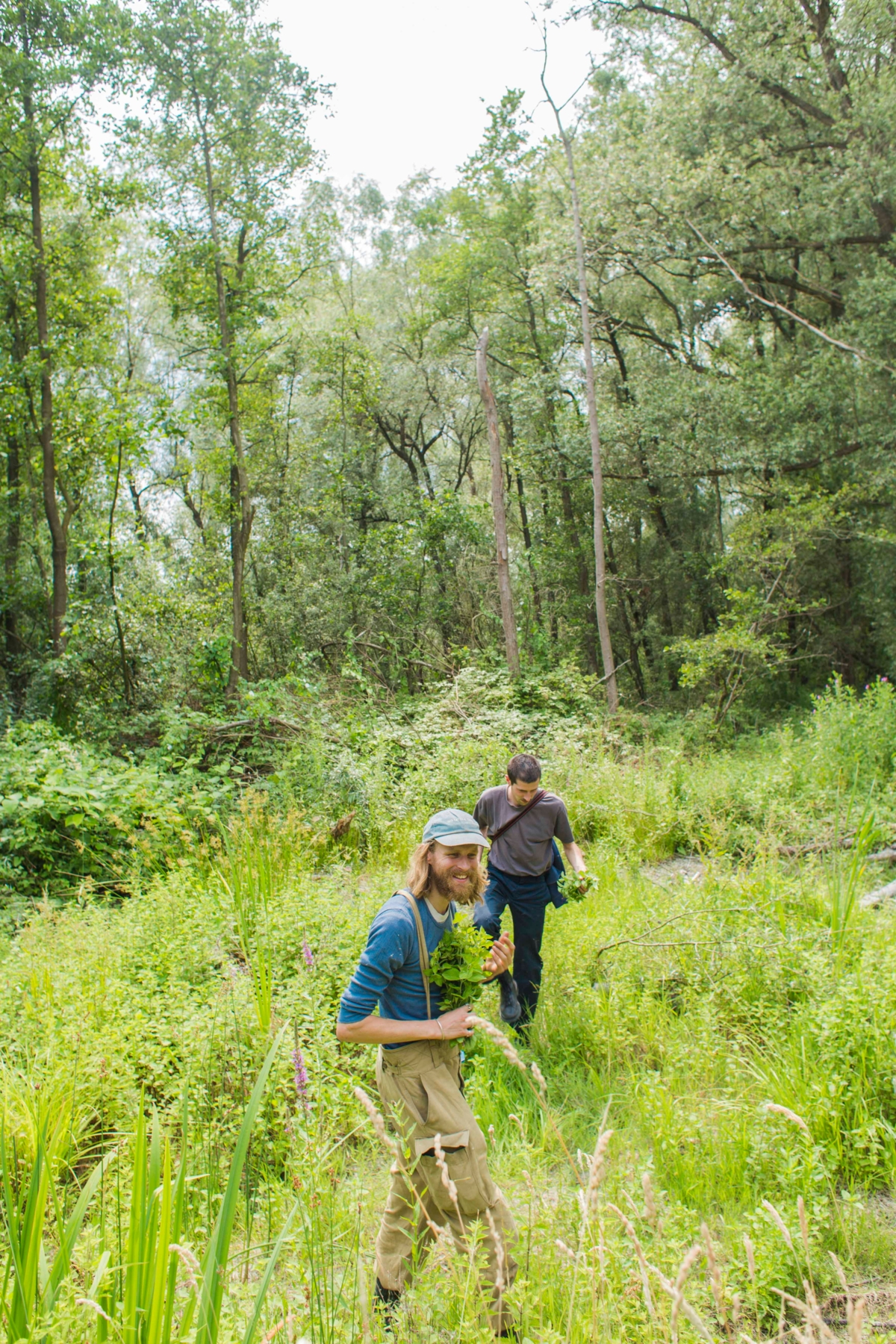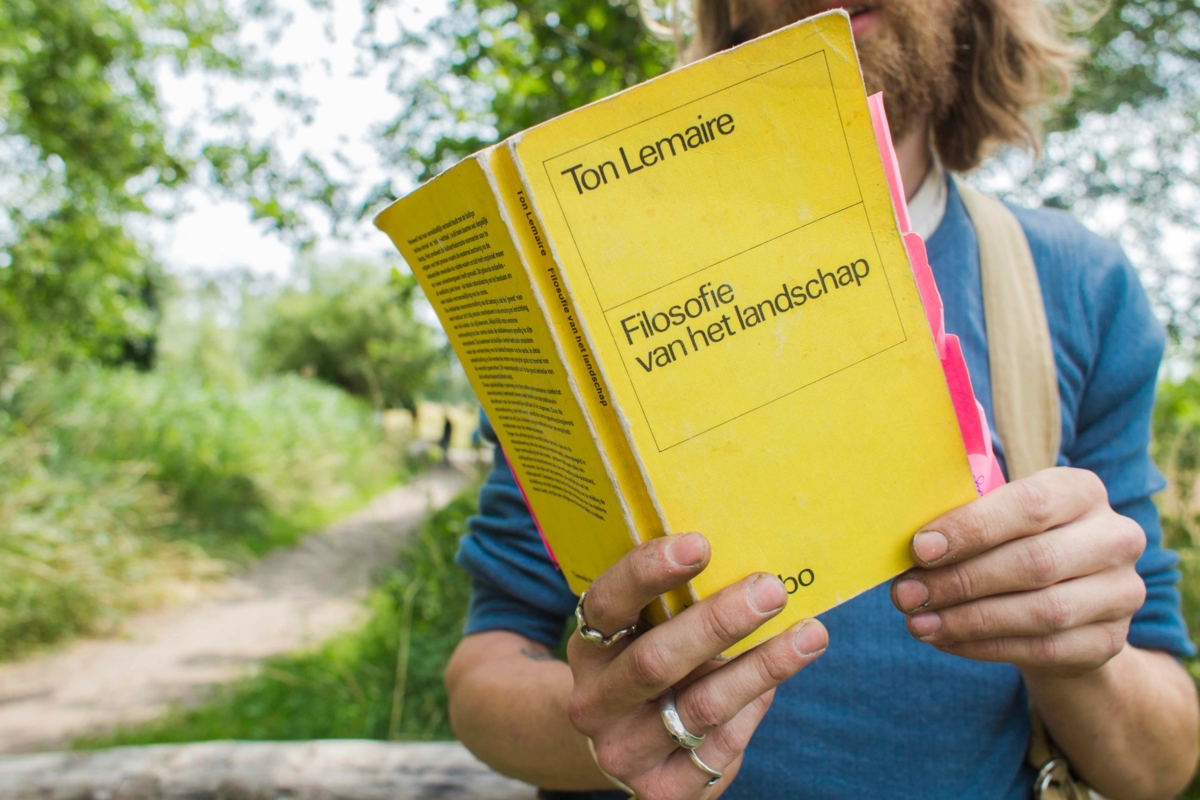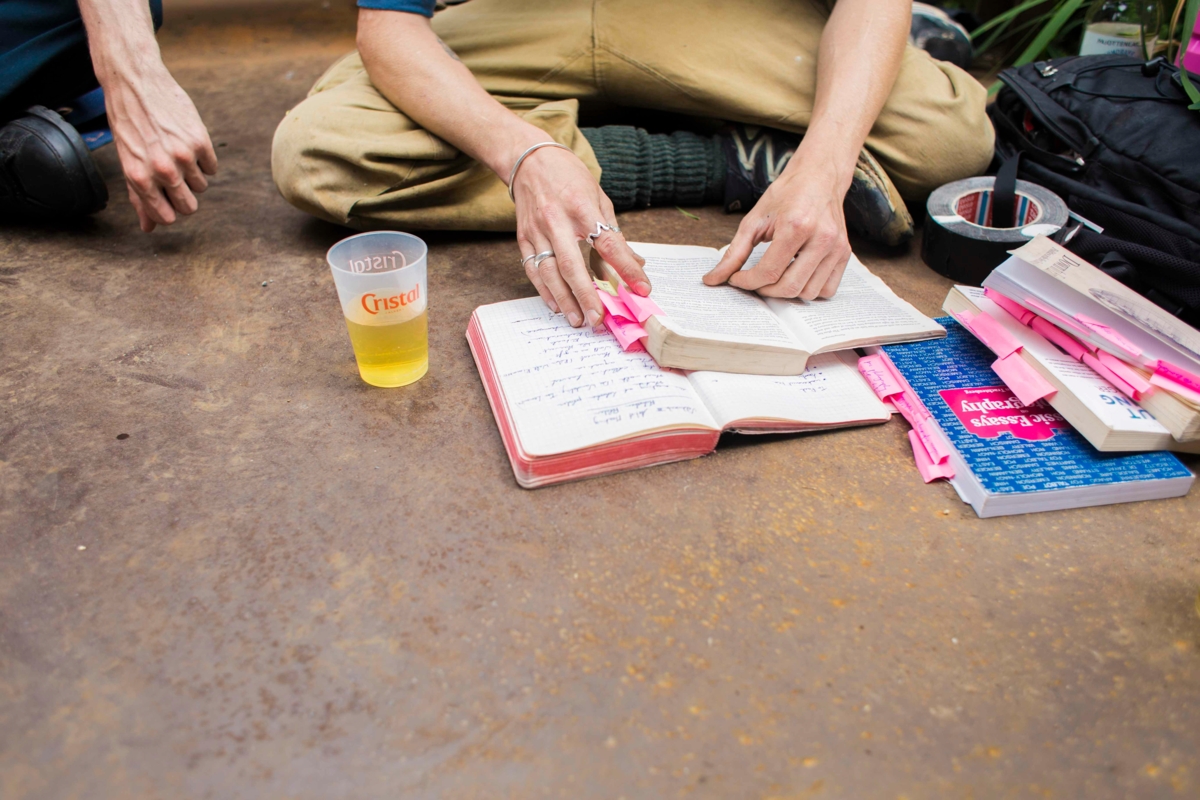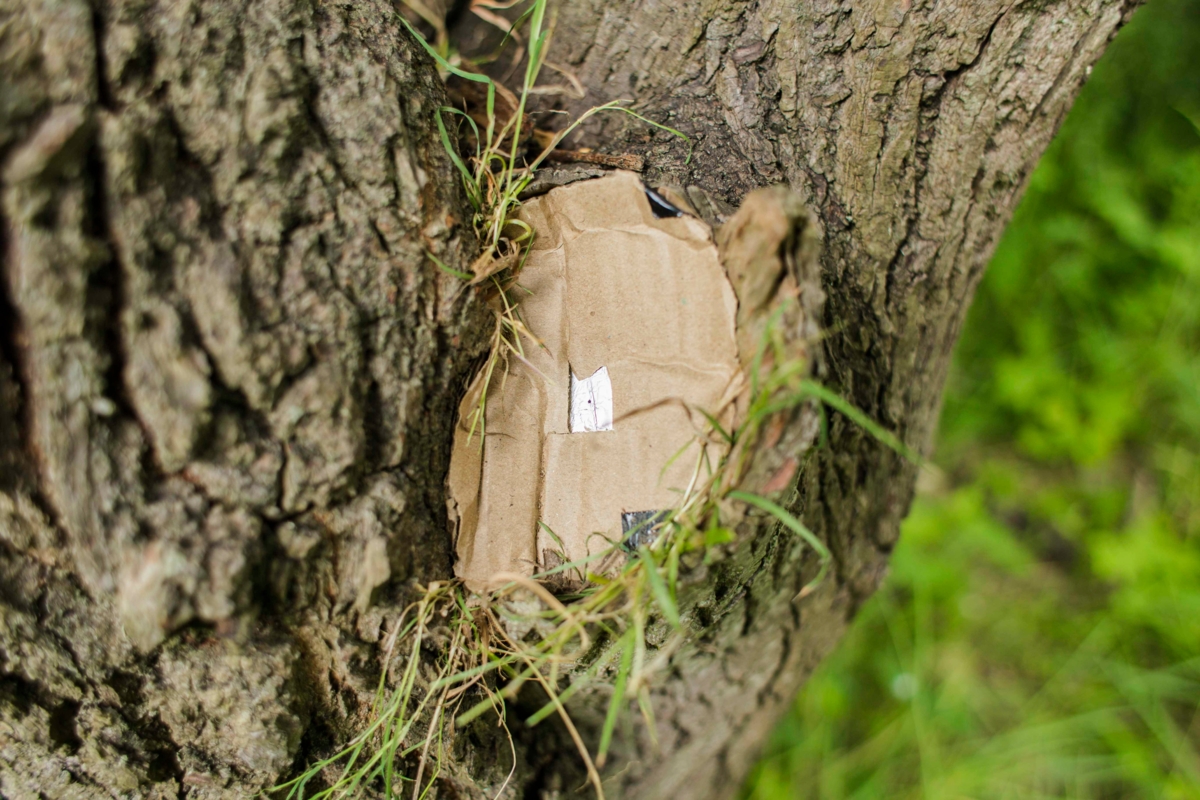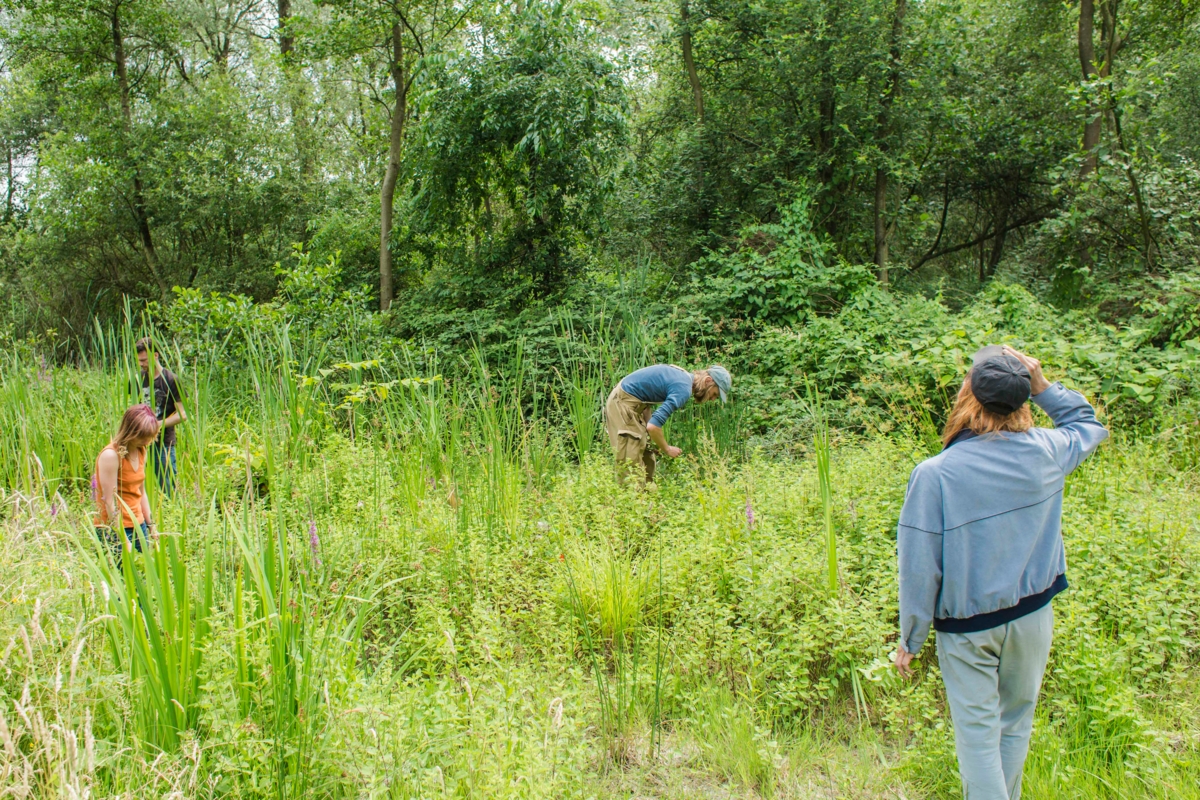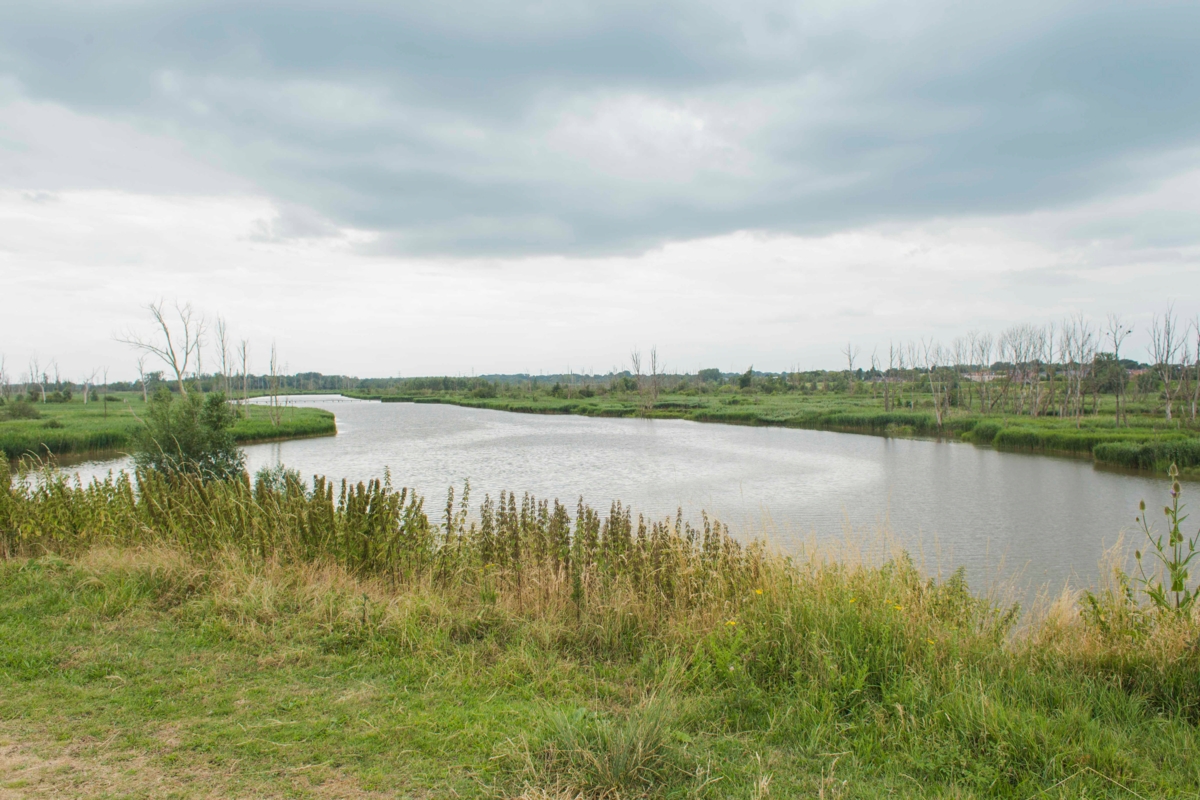Veldwerk III bijeenkomst: Tim Theo Deceuninck
Doorheen het Veldwerk-traject komt de groep op gezette tijdstippen samen. Elk om zijn beurt nodigt een kunstenaar de anderen uit voor een moment van uitwisseling, op een locatie die op dat moment relevant is voor diens onderzoek.
Tim Theo Deceuninck nam de groep mee op een wandeling doorheen de Hobokense Polder. Dit natuurgebied zit vol contrasten: aanvankelijk voorbestemd tot het urbanisatieproject ‘Polderstad’ werd het opgehoogd met zand afkomstig van de destijds aangelegde E17. Het project stierf een stille dood, bleef jarenlang braak liggen, en werd uiteindelijk uitgeroepen tot beschermd gebied. Tim Theo kent dit landschap als zijn broekzak en plaatste er ook verschillende van zijn land-camera’s. Onderweg oogstten we watermunt, dachten na over hedendaagse oogstrituelen en zagen enkele van de land-camera’s in werking. Hieronder vind je enkele van de tekstfragmenten die Tim Theo voorlas.
"Maar het bijzondere is nu - en dat maakt een landschap pas tot 'landschap' - dat het element 'natuur' het element 'kultuur' domineert en integreert. Deze dominantie van de natuur over 'de kultuur' wordt zichtbaar uitgedrukt in de lijn van de horizon. En daarmee zijn we tegelijk het essentiële van het landschap genaderd: het is een door de horizon verbonden en verenigde eenheid van natuur en kultuur.
[...]
Zo kom ik tot deze (voorlopige) bepaling van wat een 'landschap' is: het is het afgebeelde verband tussen natuur en kultuur, zó dat de kultuur is ondergeschikt gemaakt aan de natuur.
[...]
het landschap is de zelfafbeelding van de kultuur.
[...]
in een landschap situeert de kultuur zichzelf in de werkelijkheid, en fundeert zich daarbij tevens"
(uit Filosofie van Het Landschap (1970), Tom Lemaire)
"For the greater part of human history, and in places in the world today, common resources were the rule. But some invented a different story, a social construct in which everything is a commodity to be bought and sold. The market economy story has spread like wildfire with uneven results for human well-being and devastation for the natural world. But it is just a story we have told ourselves and we are free to tell another, to reclaim the old one.
One of these stories sustain the living systems on which we depend. One of these stories opens the way to living in fratitude and amazement at the richness and generosity of the world. One of these stories asks us to bestow our own gifts in kind, to celebrate our kinship with the world. We can choose. If all the world is a commodity, how poor we grow. When all the world is a gift in motion, how wealthy we become."
(Uit Braiding Sweetgrass (2013), Robin Wall Kimmerer)
"The guidelines for the Honorable Harvest are not written down, or even consistently spoken of as a whole - they are reinforced in small acts of daily life. But if you were to list them, they might look something like this:
Know the ways of the ones who take care of you, so that you may take care of them.
Introduce yourself. Be accountable as the one who comes asking for life,
Never take the first. Never take the last
Take only what you need.
Take only what is given.
Never take more than half. Leave some for others.
Harvest in a way that minimizes harm.
Use it respectfully. Never waste what you have taken.
Share.
Give thanks for what you have been given.
Give a gift in reciprocity for what you have taken.
Sustain the ones who sustain you and the earth will last forever."
(Uit Braiding Sweetgrass (2013), Robin Wall Kimmerer)
Foto's © Leontien Allemeersch
